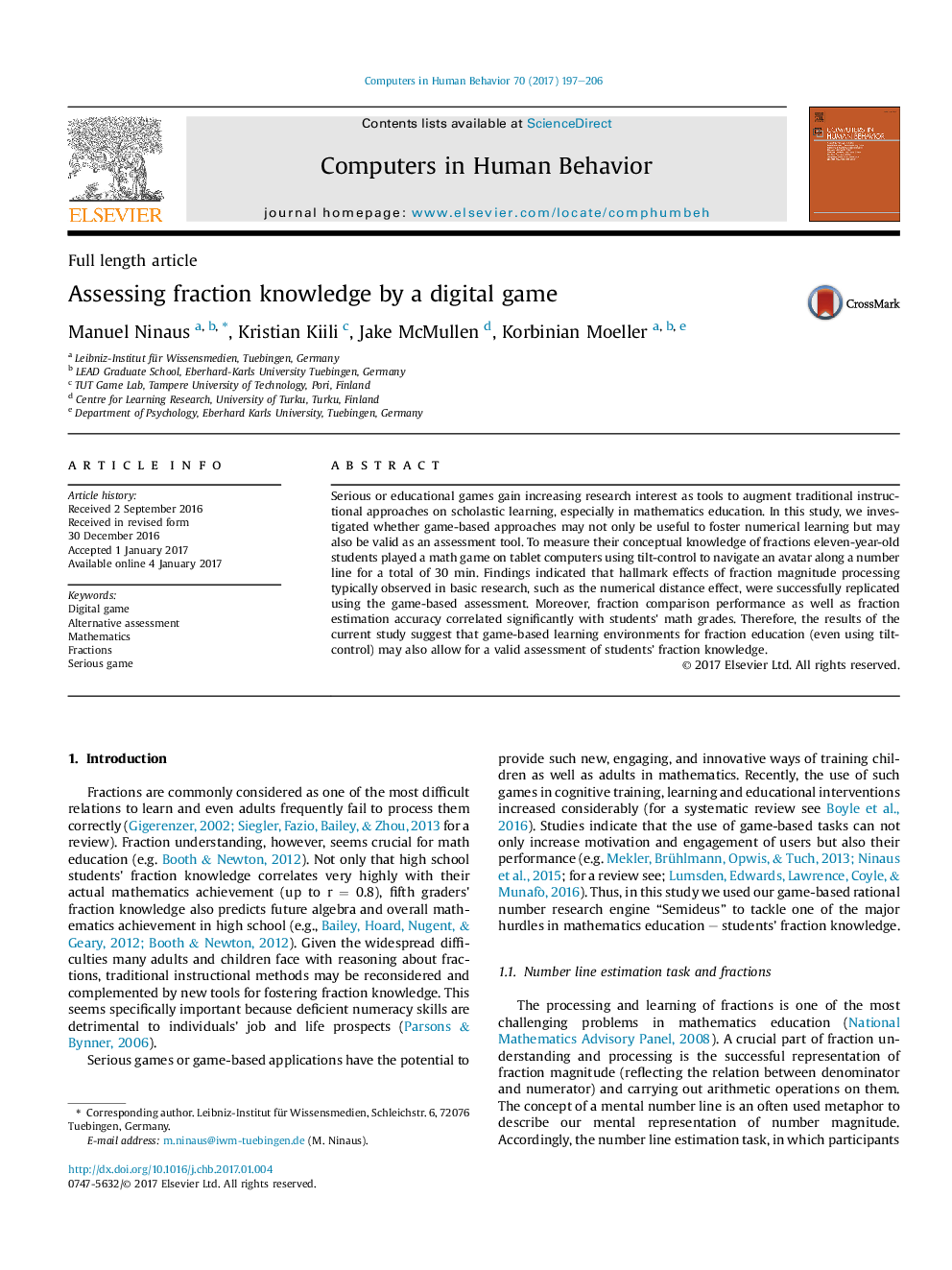| Article ID | Journal | Published Year | Pages | File Type |
|---|---|---|---|---|
| 4937291 | Computers in Human Behavior | 2017 | 10 Pages |
Abstract
Serious or educational games gain increasing research interest as tools to augment traditional instructional approaches on scholastic learning, especially in mathematics education. In this study, we investigated whether game-based approaches may not only be useful to foster numerical learning but may also be valid as an assessment tool. To measure their conceptual knowledge of fractions eleven-year-old students played a math game on tablet computers using tilt-control to navigate an avatar along a number line for a total of 30Â min. Findings indicated that hallmark effects of fraction magnitude processing typically observed in basic research, such as the numerical distance effect, were successfully replicated using the game-based assessment. Moreover, fraction comparison performance as well as fraction estimation accuracy correlated significantly with students' math grades. Therefore, the results of the current study suggest that game-based learning environments for fraction education (even using tilt-control) may also allow for a valid assessment of students' fraction knowledge.
Related Topics
Physical Sciences and Engineering
Computer Science
Computer Science Applications
Authors
Manuel Ninaus, Kristian Kiili, Jake McMullen, Korbinian Moeller,
